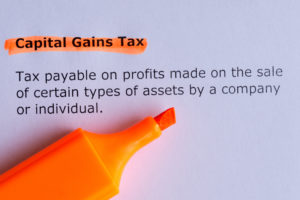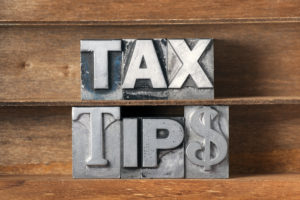The IRS Is Messing with Taxation of Unemployment Benefits

Show Notes:
1) The IRS is messing with taxation of unemployment benefits
2) High-Income folks and tax evasion issues
3) Extensions and the rules
4) File for free with income up to $72,000.
Greenstein Rogoff Olsen & Co
rcohen@groco.com
510-797-8661
www.groco.com
1) The IRS is messing with taxation of unemployment benefits
The #IRS will automatically process #tax refunds for individuals who paid #taxes on their unemployment benefits before Congress passed a law making those payments tax-free, IRS Commissioner Chuck Rettig told lawmakers. https://trib.al/8ycM6oa
– A $10,200 per individual unemployment insurance exclusion for the 2020 taxable year, only for households with modified AGI of $150,000 or less. Taxpayers who have already filed returns reporting 100% of their unemployment will need to supersede or amend their returns to get a refund;
https://www.accountingtoday.com/articles/irs-to-automatically-process-refunds-on-jobless-benefit-payments?utm_campaign=accountingtoday-tw&utm_content=socialflow&utm_medium=social&utm_source=twitter
https://www.irs.gov/faqs/irs-procedures/forms-publications/new-exclusion-of-up-to-10200-of-unemployment-compensation
2) High-Income folks and tax evasion issues
High Income Tax Avoidance Far Larger Than Thought
https://www.marketscreener.com/news/latest/High-Income-Tax-Avoidance-Far-Larger-Than-Thought-New-Paper-Estimates–32748559/
3) Extensions and Rules:
https://www.irs.gov/businesses/small-businesses-self-employed/understanding-penalties-and-interest
4) File for free with income up to $72,000:
IRS.gov is always available and has tools to help people file and pay taxes, find information about their account, and get answers to tax questions.
Here are a few things that people can do with a visit to IRS.gov.
File a tax return
Taxpayers who earned $72,000 or less in 2020 can file free using brand-name tax software with IRS Free File. People who earned more and want to do their own taxes can use Free File Fillable Forms. These are the electronic versions of IRS paper forms. Either way, everyone has a free electronic filing option.
The IRS has extended the federal income tax filing due date for individuals for the 2020 tax year from April 15, 2021, to May 17, 2021. Individual taxpayers have until May 17 to file and pay 2020 federal income taxes. If individual taxpayers need more time to file, they can use IRS Free File through May 17 to electronically request an extension to file until Oct. 15. Taxpayers should remember that an extension of time to file is not an extension of time to pay. Penalties and interest may apply to taxes not paid by May 17.
Individual taxpayers can get an extension by paying all or part of their estimated income tax due using Direct Pay, the Electronic Federal Tax Payment System or a credit or debit card, and indicating that the payment is for an extension. This way they won’t have to file a separate extension form and will receive a confirmation number for their records.
Don Howard – CEO of The James Irvine Foundation
Interview Transcript of Don Howard – CEO of The James Irvine Foundation: Alan Olsen: Welcome back and busy here today with Don Howard. Welcome to today’s show. Don Howard: Thanks for having me, Alan Alan Olsen: So Don, for the listener-ship can you give some background of what led you up to where…
Trump Holds Steady on Capital Gains Taxes…For Now
Anyone who was holding his or her breath for the president to lower capital gains taxes better exhale. At least for the moment. According to a White House spokesperson, President Trump decided against slashing capital gains taxes after meeting with his advisors last week. The president and his advisors reportedly met to discuss several policy…
Save or Invest – Either or, or Both?
Save or Invest – Either or, or Both? Building wealth is a process. It takes time, knowledge, intelligence, and sometimes even a bit of luck to build true wealth. There are plenty of ways and methods to build wealth. If you ask most high net worth individuals how they got wealthy you will get numerous…
Tax Planning Tips that Can Save You a Bundle
Let’s talk about some tax planning tips that can save you a bundle. Most high net worth individuals didn’t get wealth by sitting around and hoping to get rich. They have to earn it. That’s one of the biggest differences between just getting by and actually getting rich. And one of the things high net…




